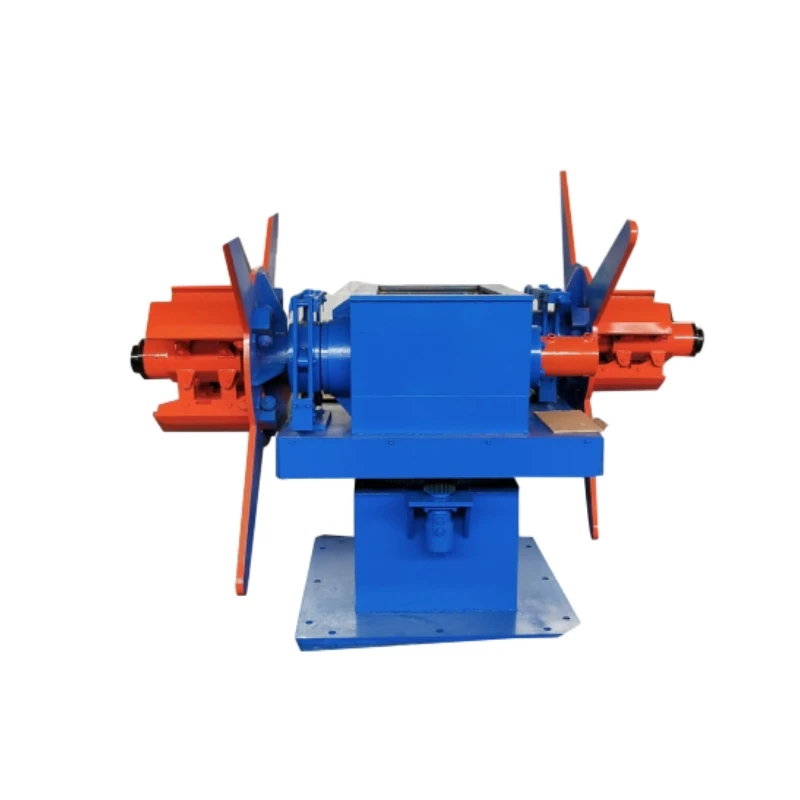Coil Unwinding Solutions for Efficient Production Processes
Understanding Coil Decoilers An Essential Tool for Metalworking Industries
In the realm of metalworking and manufacturing, the handling of materials plays a crucial role in ensuring efficiency and quality in production processes. Among the various tools and machinery employed in these industries, the coil decoiler stands out as an essential piece of equipment for managing coiled materials. This article delves into the function, types, applications, and benefits of coil decoilers.
What is a Coil Decoiler?
A coil decoiler, also known as a coil unroller or coil opener, is a machine designed to unwind and straighten coiled sheets or strips of metal or other materials. These coils can be made from various metals, including steel, aluminum, and copper, and are often used in manufacturing processes that require precise metal forming, cutting, or stamping.
The primary function of a coil decoiler is to facilitate the feeding of coiled material into production lines. By unwinding the coil smoothly and evenly, decoilers help prevent material damage and ensure a consistent flow of material to downstream operations.
Types of Coil Decoilers
Coil decoilers come in a variety of designs to accommodate different types of materials and production requirements. The main types include
1. Manual Decoilers These are operated by hand and are suitable for smaller operations or occasional use. They allow the user to control the unwinding of the coil, making them easier to use for lighter materials.
2. Semi-Automatic Decoilers These machines combine manual operation with some automated features, making the process faster and more efficient. They often require some level of manual intervention while providing better control over the unwinding process.
3. Automatic Decoilers These are fully automated systems designed for high-volume production environments. They can handle large coils and integrate seamlessly with other machinery, such as press brakes and stamping machines. Automatic decoilers include features like sensors and controls that adjust the unwinding speed based on the material being processed.
4. Powered Decoilers Designed for heavy-duty applications, these decoilers use electric motors to unfurl the coil. They can maintain consistent tension and control during the unwinding process, minimizing the risk of material deformity or damage.
Applications of Coil Decoilers
coil decoiler

Coil decoilers find applications in various industries, including
- Automotive Manufacturing In the production of automotive parts, coil decoilers help to feed steel or aluminum sheets into stamping machines, ensuring accurate and efficient operation.
- Construction Decoilers are used in the construction industry to supply metal sheets for roofing, siding, and structural components.
- Electronics In the manufacture of electronic components, coil decoilers manage delicate materials that require precision and care during the feeding process.
- Metal Fabrication Coil decoilers play a vital role in metal fabrication shops by providing a steady flow of material to CNC machines, shear cutters, and other tooling equipment.
Benefits of Using Coil Decoilers
The advantages of integrating coil decoilers into manufacturing processes are manifold. Some key benefits include
1. Efficiency Decoilers streamline the production process, allowing for faster and more consistent feeding of materials.
2. Improved Safety By mechanizing the unwinding process, coil decoilers reduce the risk of injury associated with manual handling of heavy coils.
3. Material Integrity Properly designed decoilers minimize the risk of material damage, maintaining the quality of the metal being processed.
4. Cost-Effectiveness By enhancing production efficiency and reducing material waste, coil decoilers contribute to overall cost savings in manufacturing operations.
In conclusion, coil decoilers are invaluable tools in modern metalworking and manufacturing industries. By facilitating the handling of coiled materials, they ensure efficient, safe, and high-quality production processes. As technology advances, we can expect further innovations in coil decoiling systems, making them even more integral to the future of manufacturing.
-
High Frequency Straight Seam Welded Pipe Production Line-BzZhou Xinghua Machinery Equipment Manufacturing Co., LTD.|line pipe steel&welded gas pipeNewsJul.30,2025
-
High Frequency Straight Seam Welded Pipe Production Line-BzZhou Xinghua Machinery Equipment Manufacturing Co., LTD.|High Precision&Automated SolutionsNewsJul.30,2025
-
High Frequency Straight Seam Welded Pipe Production Line - BzZhou Xinghua Machinery Equipment Manufacturing Co., Ltd.NewsJul.30,2025
-
High Frequency Straight Seam Welded Pipe Production Line-BzZhou Xinghua Machinery Equipment Manufacturing Co., LTD.|Precision Welding, High EfficiencyNewsJul.30,2025
-
High Frequency Straight Seam Welded Pipe Production Line|BzZhou Xinghua|Precision Welding&EfficiencyNewsJul.30,2025
-
High Frequency Straight Seam Welded Pipe Production Line - BzZhou Xinghua|Precision Engineering&EfficiencyNewsJul.30,2025


